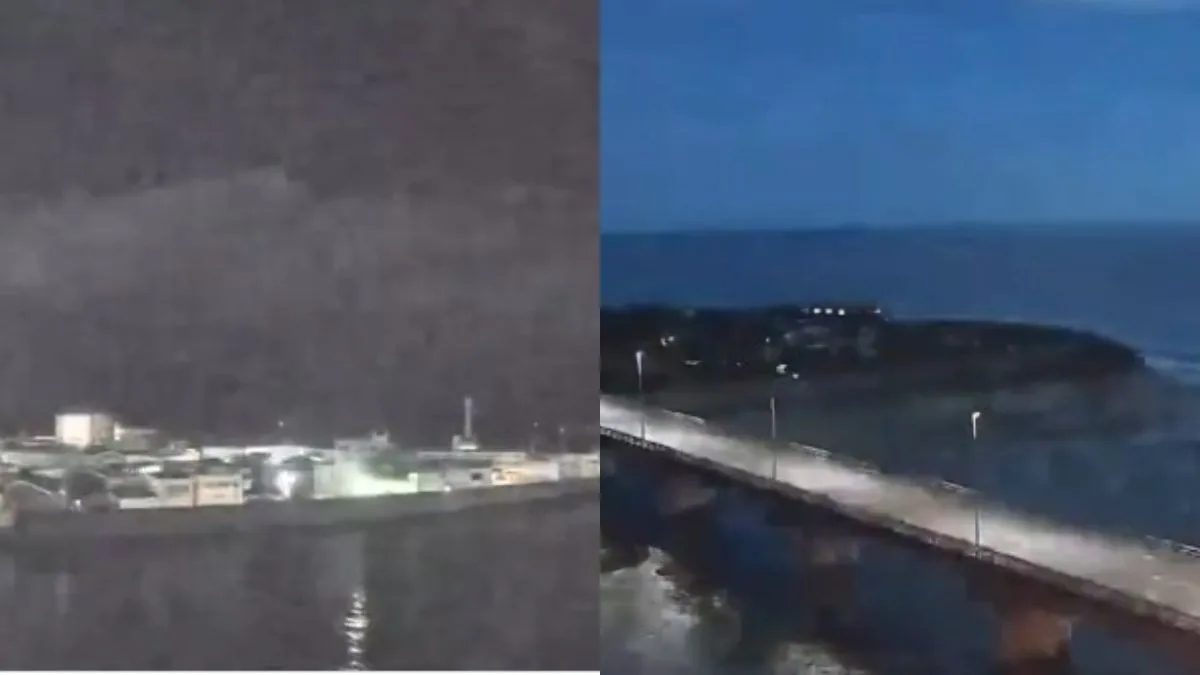- By Shivangi Sharma
- Wed, 20 Aug 2025 07:35 PM (IST)
- Source:JND
People in western Japan were left amazed on Tuesday evening when a stunning fireball flashed across the sky, illuminating the darkness like it was daytime. The remarkable display, which came at about 11 pm local time, was seen by hundreds of kilometres and soon went viral after videos and images flooded social media.
Witnesses portrayed the scene as both stunning and perplexing. "A white flash of light that I had never seen before descended from on high, and it grew so intense that I could see distinctly the outlines of the houses surrounding us," recalled Yoshihiko Hamahata, who was driving in Miyazaki Prefecture at the moment. Others reported that they felt as if the air had vibrated as the fireball flashed across the sky. "It looked like daylight. For one minute, I didn't know what happened and was very surprised," said one resident to Japan's NHK broadcaster.
Fantastic view of the fireball/meteor in Japan. This is from Fukuoka Airport...☄️pic.twitter.com/aSw9IIBEv3
— Volcaholic 🌋 (@volcaholic1) August 19, 2025
Meteor/fireball lights up Sakurajima volcano and Kagoshima City in Japan tonight ☄️ pic.twitter.com/WX9NZUwUUg
— Volcaholic 🌋 (@volcaholic1) August 19, 2025
Experts Rule Out Alien Theories
While the brilliant fireball prompted some on the internet to jest about an invasion from outer space, astronomers were quick to provide the science behind the unusual event. Toshihisa Maeda, the director of the Sendai Space Museum, confirmed that light was produced by a meteor incinerating in Earth's atmosphere. "This was a fireball, a very bright meteor formed when dust particles or asteroid pieces enter the atmosphere and shine brightly as they burn," he explained.
Maeda further added that the sudden flash was so brilliant that it briefly turned nighttime into day, and ventured that chances were that meteorite fragments could have fallen into the ocean.
The timing of the sighting coincided with another phenomenon in the sky in Japan. Last week, locals in Aomori Prefecture saw a rare "meteoroid cluster" when the Perseid meteor shower was at its peak, where several shooting stars occur nearly at the same time. The recent fireball sighting only heightened the excitement for astronomy buffs around the country.
What Exactly Is A Meteor?
Meteors, commonly referred to as "shooting stars," are produced by meteoroids entering Earth's atmosphere at high velocities and burning up from friction with atmospheric particles, NASA states. Meteoroids are tiny space rocks between tiny dust grains and small asteroids. Scientists calculate that almost 44 tonnes of meteoritic material enter Earth every day, although most vaporise well before reaching the ground, leaving behind bright, short-lived streaks of light.

